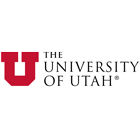This specialization focuses on how planning practices can preserve public goods such as air, water, and land, secure positive land-use interactions and avoid adverse ones, effectively enhance economic/fiscal benefits, create desirable and resilient places, apportion benefits and burdens equitably, and remove barriers experienced by many environmental justice populations. Accessibility looks at how transportation or transportation substitutes like the information technologies enrich people's lives by giving them opportunities for employment, education, health care, etc. Market preferences today are much more diversified, with marked shifts towards communities that are interwoven with pedestrian-oriented features and easily accessible to jobs, services, and amenities. Students learn how these trends impact professional planning practice and develop the skills to craft effective Smart Growth policy responses. Students at the U become impactful urban planners and designers while also contributing to a forward thinking and dynamic Utah. The Master of City and Metropolitan Planning (MCMP) is an accredited professional degree that prepares students to achieve excellence in guiding the growth and development of towns, cities, and regions. The core courses emphasize ecological resiliency, smart growth, and social justice through effective communication, collaboration, and innovation. The program blends core knowledge and skills with specializations to prepare students for professional leadership roles in public sector agencies at local, regional, state, and federal levels as well as private consulting firms, and non-profit organizations. Interdisciplinary work, drawing from fields outside of planning, is encouraged. The curriculum additionally features a community-based planning workshop and a capstone professional project.






